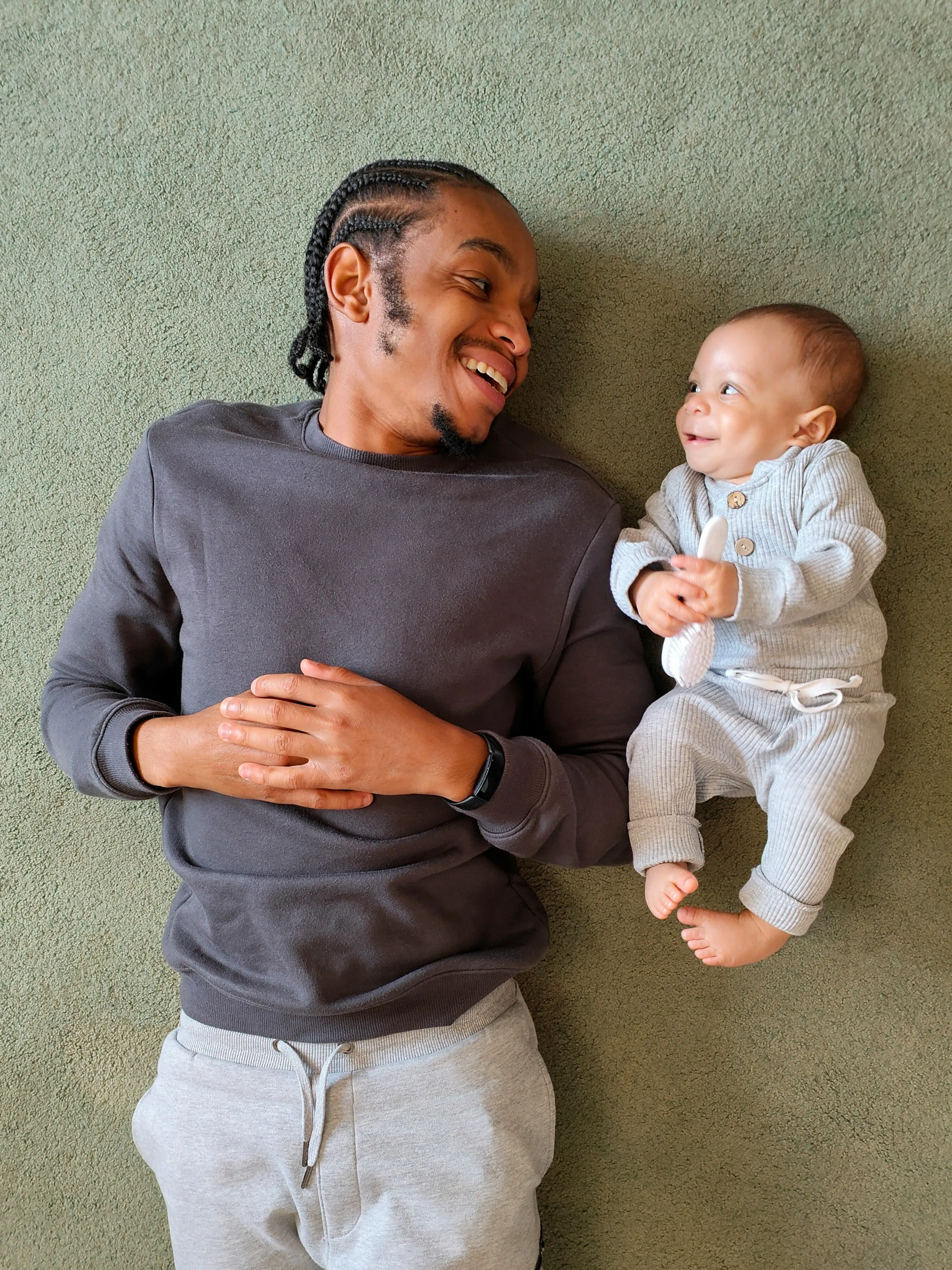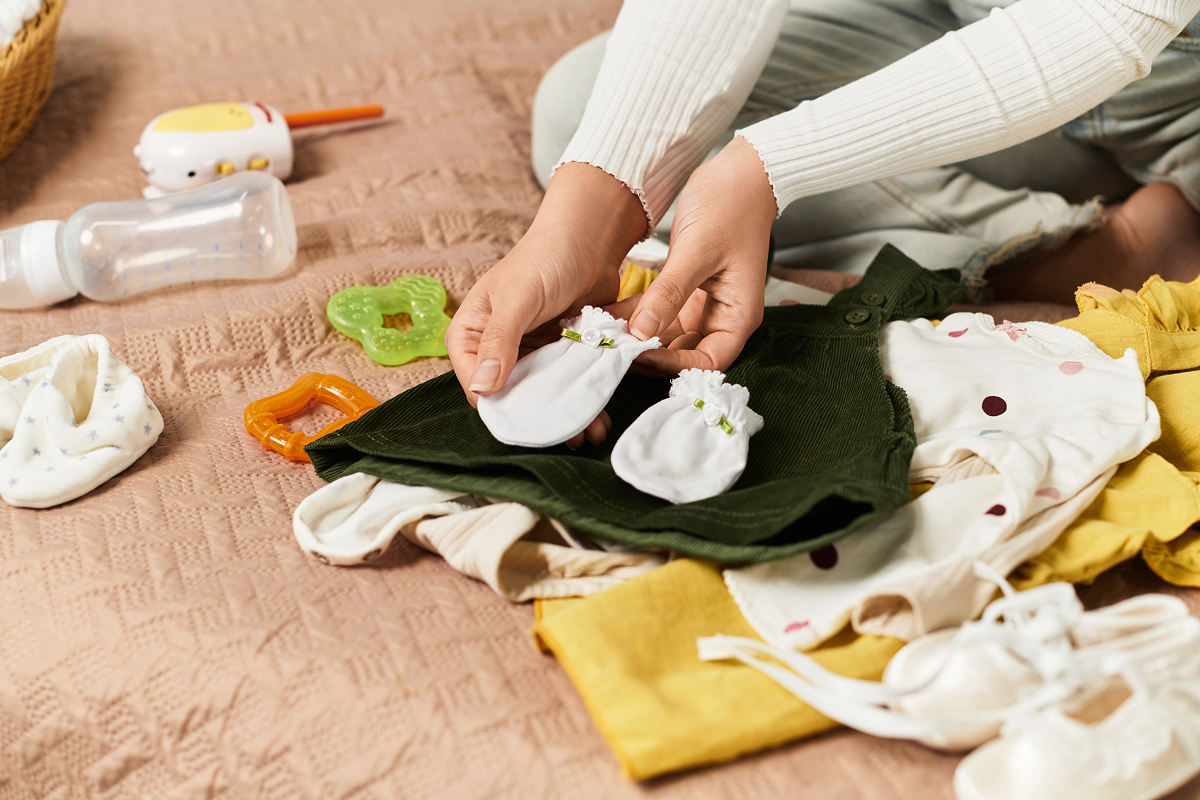Join us for a Meet & Greet! Get an office tour, meet a pediatrician, ask questions, and get baby-ready with expert tips, snacks, and giveaways.
Newborn Care
Congratulations! There’s nothing more exciting than welcoming a new baby into your family. We know You probably have a lot of questions about what those first few months will look like. We put together this guide to help you navigate this exciting transition.

Choosing a Pediatrician
We recommend you begin your search a few months before your baby’s due date, and know that some babies can – surprise! – come early. Your OB-GYN (obstetrician-gynecologist) or midwife may already be asking for the name and contact information of your pediatrician. They will require it upon delivery.
Where to Start Your Search
You might ask for recommendations from friends or family or neighbors in your community. Importantly, you should check your insurance to see what pediatricians are in your plan. Here are the lists of insurance we accept:
What to Look for in a Pediatrician
You can also find a pediatrician through the American Academy of Pediatrics (AAP) “Find a Pediatrician” tool which lists accredited members. Here at Bluebird Kids Health, all of our physicians are members of the AAP.
How to Choose the Right One for You
Parents choose pediatricians for all kinds of reasons, but they should always be board-eligible or board-certified and trained. Beyond that it can be helpful to review a pediatrician’s personal biography and look for experiences or interests that align with your family and your values. Get to know our providers.

Prepare a list of questions
We recommend you prepare a list of questions for the pediatrician for when you meet. Remember, there are neither correct or incorrect questions. Possible questions could include asking about:



Expecting a baby?
Baby’s First Visits
Once your baby arrives, you’ll probably have questions about what the first few visits will look like. Here’s our quick guide with a few helpful tips.

Within the first five days of your baby’s life, they will meet their pediatrician. At Bluebird Kids Health we typically see our newborns within 48 hours of their delivery. The hospital at which you are delivering can schedule this appointment on your behalf, but you are also free to call the practice directly and make an appointment. You can call us at (561) 509-5009.
Add your newborn to your health insurance right away. Most insurance plans require newborns to be added within 30 days of their birth date.
Your first visit should include a physical examination and a discussion of your family history. Your pediatrician will evaluate your baby to ensure they are physically healthy and make note of any unique findings such as birthmarks. They will also review you and your partner’s family medical history to ensure we have a complete picture in order to provide the best care for your newest family member.



What to Bring to the First Appointment
Packing your diaper bag for the first time can feel overwhelming! So here’s our quick checklist of everything you should bring to the first few appointments:
Your baby’s hospital paperwork so we can see their discharge weight and vaccinations
A swaddle or blanket to keep your baby warm (we’ll ask you to remove your baby’s clothes for the exam)
A change of clothes, extra diaper, wipes, and a formula and bottle if you’re formula feeding
All your questions!
Follow-Up Visits
You will then work with your pediatrician and the office to schedule the next few in a series of your baby’s first visits. These visits generally include:

Weight Check-ups
Your pediatrician will want to confirm your baby is eating appropriately, regaining any weight they lost in the hospital, and that their umbilical cord (belly button) has either fallen off or is about to.

Developmental Milestones
Within the first month, your pediatrician will want to evaluate if your newborn is meeting certain milestones that speak to good health, such as partially lifting their head, making new facial expressions, or startling to loud noises.

Parent Questions and Concerns
This is a time of transition and discovery for new parents and understandably, you may have many questions. These visits are meant to address any and all concerns.
Ready to book your baby's next appointment?

Developmental Milestones
At Bluebird Kids, we like to remind families that developmental milestones aren’t a test for parents — they’re simply a guide to help us spot concerns early. And the earlier we notice something, the better we can support your child’s growth.
It’s normal for kids to be ahead in one area and take a little longer in another. If you’d like to review milestones in between your well-visits, we recommend healthychildren.org.

A Day in the Life of a Newborn
The First Days (0–2 Weeks)
In these early days, I mostly eat, sleep, pee, poop — and cry! Don’t be surprised if I’m up often at night. By about 2–3 weeks old, I’m ready for short tummy time sessions, just a few minutes at a time on a mat or on your chest. This helps me build head and neck strength.

One Month Old
I’m starting to stay awake a little longer between naps and may even make eye contact with you. I still love being fed and cuddled most of the time, but you might notice I can briefly lift my head during tummy time. My movements are jerky now, but I’m learning fast!

Two Months Old
Things are getting exciting! I may smile responsively (especially when I see you!) and begin to coo. My head control is getting stronger with tummy time, though I’ll still wobble. I’m more alert, following things with my eyes, and I love hearing your voice.

Three Months Old
I’m showing more personality! I may laugh, hold my head up steadier, and even push up a little on my arms during tummy time. I’m also starting to bat at toys and bring my hands together. I’m still little, but I’m already exploring the world in new ways.


We've compiled information about breastfeeding, formula feeding, and combination feeding so you can choose what feels right for you and your family.


Safe Sleep
The American Academy of Pediatrics recommends always:
We know it can be tempting to let your baby sleep in your arms or next to you when you’re exhausted, but following these guidelines lowers the risk of SIDS and helps your baby rest safely.
And remember: you don’t have to figure it all out alone. We’re here to talk through safe sleep routines that work for your family.
Taking Care of Yourself
- Rest when you can: Let yourself sit down. The mess can wait.
- Stay nourished: Keep healthy(ish) snacks and a water bottle nearby.
- Accept help from friends and family: It truly takes a village.
- Move gently: Short walks or stretching can boost mood and energy.
- Take moments for yourself: Whether it’s a shower, a hot cup of coffee, or browsing on your phone.
- Check in on your feelings:It’s normal to feel overwhelmed. If sadness or anxiety lingers, let us know.

Learn more about your baby’s first year
From Bluebird’s providers

Frequently asked questions
What information should I expect to review at my newborn’s first visit?
Your newborn’s first visit will include a physical examination, weight check and some discussion of your family history. Go here to learn more about what to expect at your newborn’s first visit.
Will you see my newborn without insurance?
Yes! We know that it typically takes insurance companies 30-60 days to enroll your child for benefits. We simply ask that you proactively communicate with your insurance company to ensure this is completed in a timely manner, and we will submit your newborn’s claims to your insurance for payment once enrollment is complete.
Pro tip: If you have a Medicaid or HMO policy, please remember to ask your insurance to assign one of our physicians as your PCP!
How soon should I make an appointment with a newborn?
We recommend that your baby’s first visit, which includes checking their weight, take place within two days of leaving the hospital. Call us after the baby is born to book your appointment or book online call us at (561) 928-066 or book online
Can I meet my pediatrician before my newborn arrives?
We love meeting expectant parents. Please call us to attend one of our upcoming Expecting Parent Nights!
What insurance plans do you accept?
We accept a wide range of insurance plans, including Medicaid. Our services are billed through your insurance. You will be responsible for deductibles and co-pays outlined in your policy. See a full list of our plans we accept here. If you have questions about your specific policy, please give us a call at (561) 509-5009.
Are you accepting new patients and families?
Yes! We are accepting new patients across all practice locations in South Florida and Jacksonville. Please call us to schedule an appointment today.
Supportive Pediatric Care for Your Newborn
Ultimately, choosing and receiving the best pediatric care for your newborn should feel supportive and comforting, not stressful or overwhelming.
We at Bluebird Kids Health are here to help! If you would like to learn more about our services for newborns and expectant parents, please give us a call or book an appointment online.

























